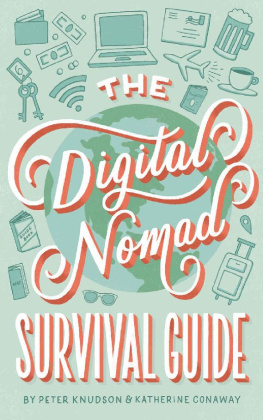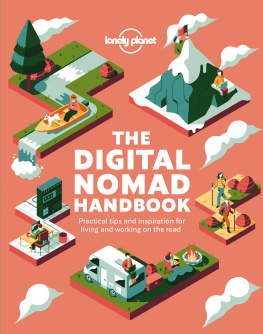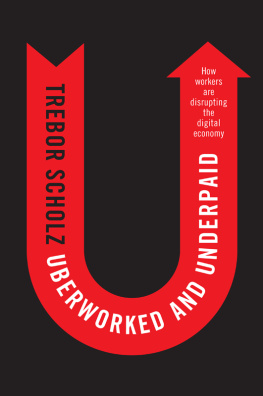EMERALD STUDIES IN ALTERNATIVITY AND MARGINALIZATION
Series Editors:
Samantha Holland, Leeds Beckett University, UK, and Karl Spracklen, Leeds Beckett University, UK
There is growing interest in work on transgression, liminality, and subcultural capital within cultural studies, sociology, and the social sciences more broadly. However, there is a lack of understanding of the problem of alternativity: what it means to be alternative in culture and society in modernity. What alternative looks like is often left unexplored. The alternative is either assumed un-problematically or stands in for some other form of social and cultural exclusion.
Alternativity delineates those spaces, scenes, subcultures, objects, and practices in modern society that are actively designed to be counter or resistive to mainstream popular culture. Alternativity is associated with marginalization, both actively pursued by individuals and imposed on individuals and subcultures. Alternativity was originally represented and constructed through acts of transgression and through shared subcultural capital. In contemporary society, alternative music scenes such as heavy metal, goth, and punk have spread around the world, and alternative fashions and embodiment practices are now adopted by footballers and fashion models. The nature of alternativity as a communicative lifeworld is now questioned in an age of globalization and hyper-commodification.
This book series provides a stimulus to new research and new theorizing on alternativity and marginalization. It provides a focus for scholars interested in sociological and cultural research that expands our understanding of the ontological status of spaces, scenes, subcultures, objects, and practices defined as alternative, liminal, or transgressive. In turn, the book series enables scholars to theorize about the status of the alternative in contemporary culture and society.
Titles in this series
Amanda DiGioia, Childbirth and Parenting in Horror Texts: The Marginalized and the Monstrous.
Karl Spracklen and Beverley Spracklen, The Evolution of Goth Culture: The Origins and Deeds of the New Goths.
Samantha Holland and Karl Spracklen (Eds), Subcultures, Bodies and Spaces: Essays on Alternativity and Marginalization.
Stephen Brown and Marie-Ccile Cervellon, Revolutionary Nostalgia: Neo-Burlesque, Retromania and Social Change.
Asya Draganova, Popular Music in Contemporary Bulgaria: At the Crossroads.
Eleanor Peters, The Use and Abuse of Music: Criminal Records.
Emerald Publishing Limited
Howard House, Wagon Lane, Bingley BD16 1WA, UK
First edition 2021
2021 Beverly Yuen Thompson. Published under exclusive licence by Emerald Publishing Limited.
Reprints and permissions service
Contact:
No part of this book may be reproduced, stored in a retrieval system, transmitted in any form or by any means electronic, mechanical, photocopying, recording or otherwise without either the prior written permission of the publisher or a licence permitting restricted copying issued in the UK by The Copyright Licensing Agency and in the USA by The Copyright Clearance Center. Any opinions expressed in the chapters are those of the authors. Whilst Emerald makes every effort to ensure the quality and accuracy of its content, Emerald makes no representation implied or otherwise, as to the chapters suitability and application and disclaims any warranties, express or implied, to their use.
British Library Cataloguing in Publication Data
A catalogue record for this book is available from the British Library
ISBN: 978-1-80071-546-2 (Print)
ISBN: 978-1-80071-545-5 (Online)
ISBN: 978-1-80071-547-9 (Epub)
Dedicated to Margaret Kwei-On Yuen and Robert G. Thompson.
Dedicated to all struggling workers in the gig economy.
Introduction
The Digital Nomad
Digital Nomads in Pandemic Times
I am writing during the coronavirus COVID-19 pandemic, which has significantly altered the context of the digital nomad lifestyle. Pandemics and environmental catastrophes will likely continue to have increasing impacts on both leisure travel and remote work in ways only currently speculated upon. Before the pandemic digital nomads or remote workers who use their freedom-from-location to travel the world were an odd minority. I envision them as canaries in the digital coalmine. They point to the vulnerabilities of future employment models for the next generations. Overnight as we entered the pandemic crisis, many white-collar workers were thrown into a digital workplace, as they were quarantined in their homes, along with family members, and children released from school. For the top tech workers, such as those at Google and Microsoft, they have the privilege of continuing their work from home for the indefinite future (C. Duffy, 2020). Of course, the top tech and start-up workers are best positioned for remote work. Twitter is allowing its staff to work from home forever (Baron, 2020). The pandemic brought to light the impact of decades of dismantling and underfunding social safety nets and health care, environmental racism, widespread inequalities, and high rates of poverty in the United States and beyond. As millions lose their employment in the United States, even more desperate workers will seek employment on digital freelance platforms, competing with the already struggling entry-level digital nomad workers. As more people work remotely, their ability to travel or move to new locations increases, potentially shifting urban density. Digital nomads often found their hometowns prohibitively expensive, and the ability to live abroad more cheaply was one motivating factor. Now that is true for even more people. Matthew Haag (2020) writes for the New York Times an article entitled, Manhattan Faces a Reckoning If Working From Home Becomes the Norm, in which he points out that finance firms and other high-expense Manhattan employers may not only allow workers to telecommute, but they may shutter their offices altogether and save billions in rent. Haag writes,
Before the coronavirus crisis, three of New York Citys largest commercial tenants Barclays, JP Morgan Chase and Morgan Stanley had tens of thousands of workers in towers across Manhattan. Now, as the city wrestles with when and how to reopen, executives at all three firms have decided that it is highly unlikely that all their workers will ever return to those buildings.














